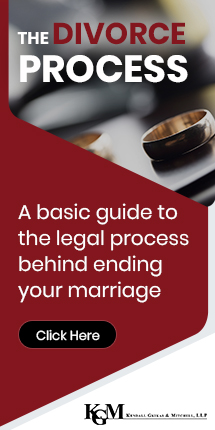 When you and your spouse own a business together, what happens when you get divorced? Does the breakup of the marriage mean the end of the business, too? How does the court decide who gets what? How will you support yourself when your income has been from the business you own together? Are you headed for bankruptcy?
When you and your spouse own a business together, what happens when you get divorced? Does the breakup of the marriage mean the end of the business, too? How does the court decide who gets what? How will you support yourself when your income has been from the business you own together? Are you headed for bankruptcy?
If you have been both marriage partners and business partners, you will face even more complicated issues than most divorcing couples. And even though it is one of the issues that can be addressed in a pre-nuptial or post-nuptial agreement (or in the shareholders’ agreement or partnership agreement when a business is started), most couples never plan for the worst-case scenario. And even if you did plan ahead, you will have a lot of questions. So what happens now?
Community property and the rights of each spouse
In California, all of the property, debt, or income acquired during the marriage is usually considered community property and is split 50/50. However, there are many situations where an even split would not be appropriate. A court will consider relevant factors such as whether the business was started before or during the marriage, and how much money and time each spouse contributed.
Even if both spouses are not actively involved in the business, the spouse in control of the business has a duty to preserve the value of the business and keep it running profitably. That may include an obligation to give the other spouse written notice before attempting to sell, lease, or borrow against the business and property. Furthermore, they will need to get written consent before selling the business below its market value.
Dividing the business fairly
An appraiser can be brought in to assess the business and place a fair market value on assets, so that both parties are fully aware of how much it is worth. But how is it possible to divide the business fairly?
California courts recognize the value of keeping a business intact and in the hands of the partner who has invested the most time and energy into the enterprise. But when both spouses have contributed in some way, it might not be possible to make a clean and fair break. Usually, the court would not order the business to be sold and the proceeds divided, except as a last resort. If the couple has other valuable community property, one spouse might receive the majority of that property in lieu of a share of the business. Or one spouse might be given the business, and the other would receive a long-term payout, such as a share of the profits that diminishes over time. Every business is different, so solutions can be customized for the situation.
It’s not personal, it’s business… except when it’s personal
It is never easy to put emotions aside in a divorce, but couples that work out an agreement together may ultimately be more satisfied with the results. In fact, the National Federation of Independent Business (NFIB) recommends using a family law attorney to help reach an agreement through mediation, rather than resorting to costly commercial litigation to divide the business. Litigation can be much more expensive than mediation, so it preserves the business assets when the couple can work out an agreement together.
At Kendall Gkikas & Mitchell, LLP, we have over 20 years of experience handling complicated divorces in Southern California. If you have questions about your divorce and how it will affect your family-owned business, call 909-482-1422 or email info@parents4children.com to set up your initial consultation today.


